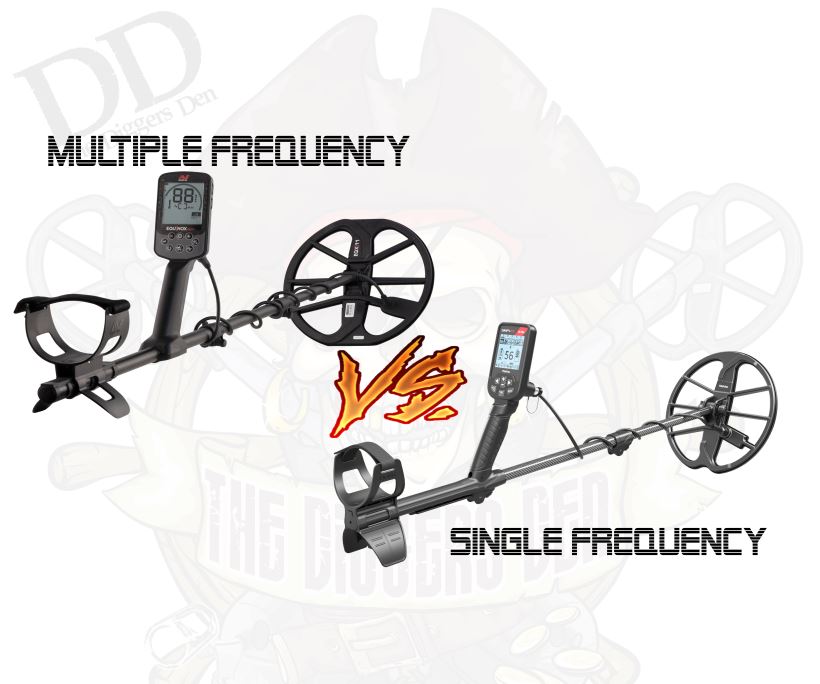When it comes to metal detecting, the type of detector you choose can greatly impact your success. Two popular options on the market are multi-frequency and single-frequency metal detectors. But what exactly is the difference between the two, and how does it affect your treasure hunting endeavors?
What is the Science Behind Multi-Frequency Metal Detectors?

Multi-frequency metal detectors operate by emitting multiple frequencies simultaneously. This allows them to detect a wider range of targets, making them versatile and efficient. By using a variety of frequencies, these detectors can pick up on different types of metals at various depths. Some options are the XP Deus 2, Minelab Manticore, Minelab Equinox, Garrett Apex and Nokta Legend
How Do Single Frequency Metal Detectors Compare?

On the other hand, single-frequency metal detectors operate at a specific frequency, making them more specialized in their detection capabilities. While they may not have the same range as multi-frequency detectors, they excel at detecting specific types of metals with precision. Some single frequency detectors such as the Minelab X-Terra Pro have multiple single frequency options to chose from, making that machine a little more versatile for different conductive targets,
Which Detector is Right for You?
Choosing between a multi-frequency and single-frequency metal detector ultimately depends on your detecting goals. If you are looking for versatility and the ability to detect a wide range of metals, a multi-frequency detector may be the best option. However, if you have a specific type of metal in mind and want precise detection, a single-frequency detector could be more suitable.
Both types of metal detectors have their own strengths and weaknesses, so it's essential to consider your detecting needs before making a decision. Whether you opt for the versatility of a multi-frequency detector or the precision of a single-frequency detector, understanding the science behind each can help you make an informed choice.
If you have any questions about what machine would be right for you, feel free to reach out to us via email, phone or one of our social media pages.
```

0 comments